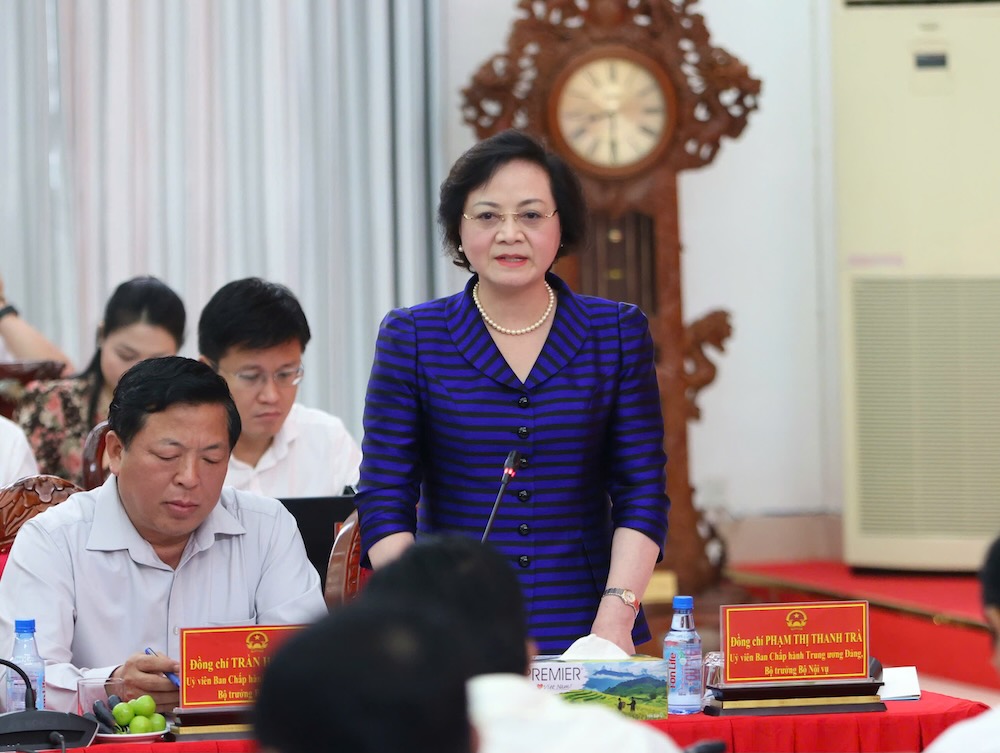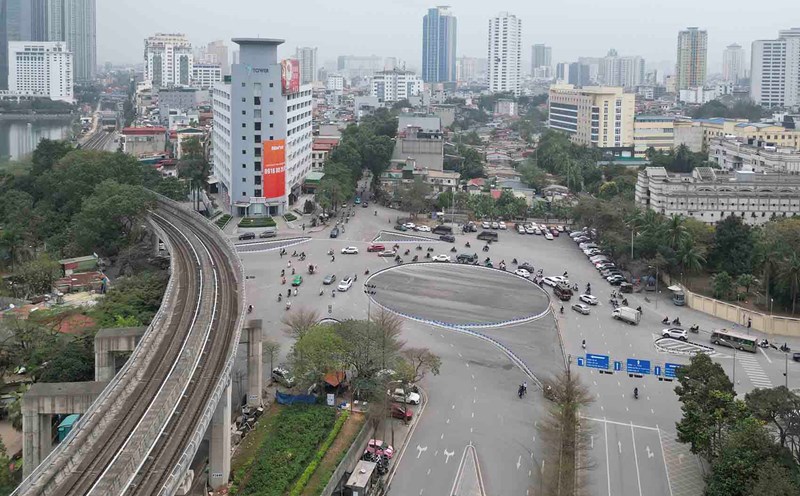On July 13, in Can Tho City, Politburo member and Prime Minister Pham Minh Chinh chaired a Conference on the implementation of the two-level local government model; progress of implementing key transport projects; Sustainable development project of 1 million hectares of specialized rice in the Mekong Delta.
Regarding the content of implementing the two-level local government model, Central Party Committee member, Minister of Home Affairs Pham Thi Thanh Tra informed that in the past time, localities have urgently implemented it in accordance with the direction of the Politburo, the Government and the Prime Minister. The implementation from July 1 to now has been methodical, serious, on schedule, and achieved the set goals.

The Minister noted that provinces and cities in the Mekong Delta have quickly stabilized the organization of the administrative apparatus after the reorganization, especially at the provincial and commune levels. The process of organizing and assigning cadres is carried out flexibly and cautiously, ensuring no interruption in serving people and businesses.
Minister Pham Thi Thanh Tra highly appreciated the proactiveness of localities in resolving the regime and policies for cadres who quit their jobs according to regulations; actively receiving and implementing decentralization and delegation of authority from the Central Government.
"The initial results were quite successful and smooth, without major problems in the operation of the two-level local government apparatus," the Minister emphasized.
All of these demonstrate the sense of responsibility, exemplaryness, determination and great efforts from the local leadership team to ensure the effective operation of local governments at both levels, better serving people and businesses in the recent short period.
However, Minister Pham Thi Thanh Tra also pointed out a number of difficulties and problems that need to continue to be focused on overcoming to ensure the two-level local government model operates truly effectively.
First of all, the issue of reorganizing the apparatus at the new provincial and commune levels is still confusing in some places, especially in preparing the staff to meet the requirements of the task.
According to the Minister, some provinces and cities have proactively arranged deputy cadres of departments and branches to the grassroots to be Chairmen and Secretaries at the commune level, thereby improving the quality of the team at the grassroots level and restructuring the provincial-level organization. In some places, the transfer and appointment of double cadres is sometimes lacking in initiative, leading to a situation where the number of deputy cadres in departments and branches is still high.
Therefore, the Ministry of Home Affairs is currently developing a set of work efficiency assessment tools (KPI) for nationwide implementation. The Minister requested localities to proactively review and use KPI to detect early and promptly replace cadres who do not meet requirements.
"If it does not meet the requirements, it must be adjusted and replaced immediately to ensure the quality of the staff, especially at the commune level - where the workload is very large", said Minister Pham Thi Thanh Tra.
According to statistics, the commune level alone is currently having to handle more than 500 administrative procedures and many tasks are decentralized from the district and provincial levels. Therefore, it is necessary to conduct a general review and rearrange the staff in accordance with the workload and practical requirements.










